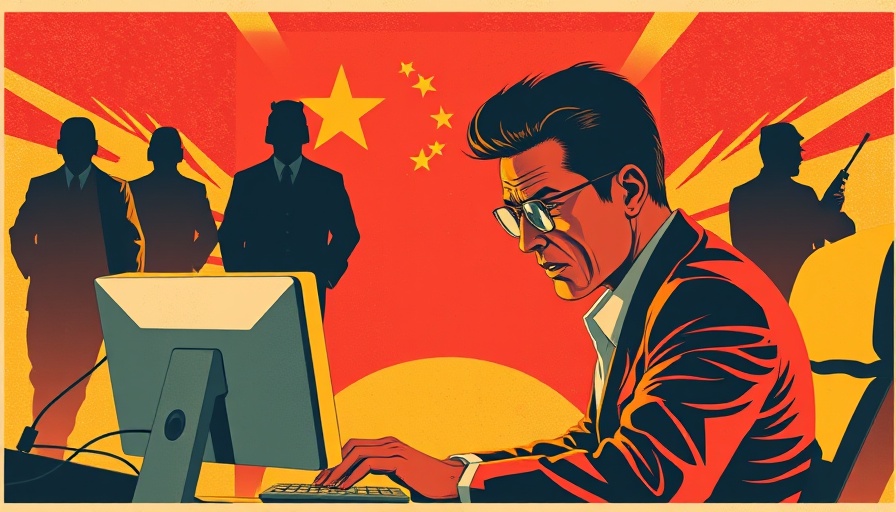
Unpacking the Metadata Mystery: What WIRED Discovered
In a recent podcast episode, WIRED's Uncanny Valley, the team uncovered shocking revelations regarding the infamous video of Jeffrey Epstein's death, which the US Department of Justice claimed was 'raw' footage from 2019. Dhruv Mehrotra, one of the team members, meticulously analyzed the video's metadata and revealed discrepancies that raised serious questions about its authenticity.
Government Transparency Under Scrutiny
This analysis sheds light on a critical issue: government transparency. When the FBI released the footage, it was supposed to offer clarity surrounding Epstein's controversial death. However, the metadata indicated that nearly three minutes of the video were cut out, leading to more questions than answers about the circumstances surrounding his death and the integrity of the investigation. The implications here are significant, as they touch upon issues of trust, accountability, and the public's right to know.
Balancing Privacy and Accountability
Privacy concerns continue to intersect with transparency. As we demand more accountability from government entities regarding high-profile cases, we must also consider the privacy implications of these investigations. Could the modifications in the footage be an attempt to protect certain individuals involved, or were they merely bureaucratic oversights? These complexities deepen the discussion surrounding ethics in the age of big data, where the balance between transparency and privacy remains delicate.
Exploring AI's Role in Analyzing Evidence
In an era where technology continuously evolves, artificial intelligence is playing an increasingly key role in analyzing vast amounts of data, including multimedia evidence. AI tools can assess patterns and anomalies in video footage and metadata more efficiently than human analysts, potentially uncovering alterations that might otherwise go unnoticed. This raises an important question: as AI becomes more integrated into investigations, how do we ensure that its application maintains the integrity, ethical standards, and transparency we strive for in our judicial systems?
Public Trust: The Bigger Picture
The implications of this analysis reach beyond just the Epstein case. Trust in institutions like the FBI can be fragile. When the public believes that critical evidence has been tampered with or misrepresented, it undermines confidence not only in that specific case but in all governmental operations. Ensuring that such incidents do not erode this trust requires robust checks and balances, improved transparency, and meticulous adherence to ethical standards in law enforcement practices.
Looking Ahead: The Future of Evidence Transparency
As technology continues to advance, the mechanisms we use to ensure accountability and transparency must evolve as well. Embracing new tools while instilling a respect for legal and ethical standards will be paramount in future investigations. As citizens, being aware of and engaged in these discussions can empower us to hold our institutions accountable and demand the transparency required for a functional democracy.
The recent analysis by WIRED not only highlights the pressing need for transparency regarding evidence in high-profile cases but also serves as a reminder of the intricate balance between privacy and public safety. As we delve deeper into questions of accountability, could we also be setting the stage for significant reforms in how investigations are conducted? Only time will tell, but one thing is certain: understanding the role of technology in these processes will become increasingly vital.
As conversations about privacy and transparency ramp up, it’s crucial to stay informed and engaged with these insights. Explore more on the latest in technological advancements and their implications on society. Your awareness is your power.
 Add Row
Add Row  Add
Add 




Write A Comment